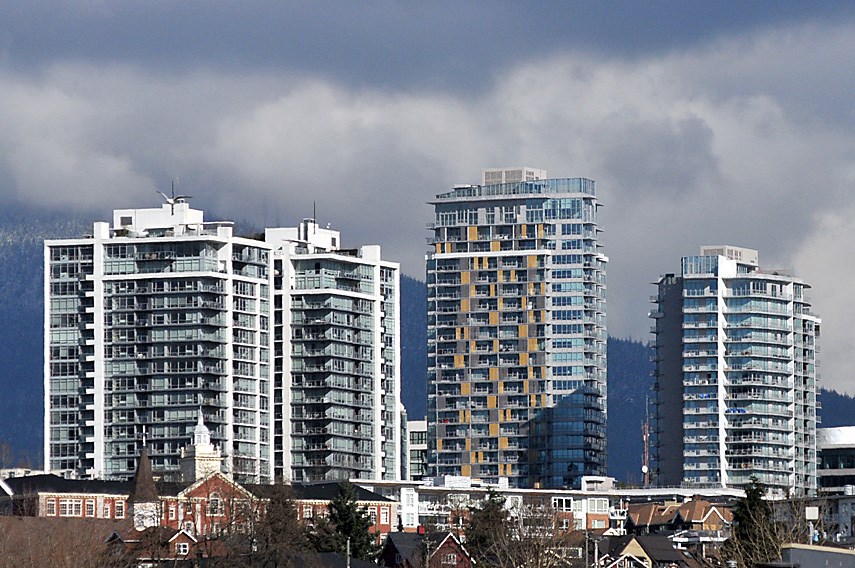The City of North Vancouver’s Lonsdale Energy Corp. is in talks with a cryptocurrency firm to warm North Vancouver homes and businesses with waste heat given off by Bitcoin mining.
While there is no formal agreement yet, the city-owned district energy utility and MintGreen have signed a non-binding term sheet that lays out the basics.
The LEC provides heat to about 100 residential and commercial buildings in the city though a series of hydronic pipes that carry hot water. The system mainly uses natural gas to heat the water at several mini-plants. Under the proposal, the Lonsdale Energy Corp. will provide a room at a yet-to-be chosen location, where MintGreen will set up servers that process large amounts of data for “mining” cryptocurrency.
What makes the proposal unique is MintGreen’s plan to build a proprietary “digital boiler” that submerges those servers in non-conductive coolant oil, which is then pumped through coils to a heat exchange system, transferring it to LEC’s pipes.
“These computers in cyberspace generate cryptocurrency. In the real world, they just make a tremendous amount of heat,” said Colin Sullivan, president of Burnaby-based MintGreen. “We're really helping the city sort of hack the economics of clean electric heating. The world’s eyes are really on North Van right now.”
Sullivan said 96 per cent of the electricity consumed for cryptocurrency would be repurposed for heating. MintGreen would cover the capital and maintenance costs.
“And we're paying a portion of the energy costs, which is saving Lonsdale and the citizens a bunch of money,” Sullivan said.
Talks about installing cryptocurrency mining on the city-owned utility have been going on for about two years. Lonsdale Energy Corp. CEO Karsten Veng characterized the arrangement as “using electricity twice.”
“If a company like MintGreen had placed their asset somewhere else, not close to a district energy system, then it's certainly wasteful,” Veng said. “The whole point of this is we're capturing this otherwise wasted heat, and providing that to customers, thereby saving greenhouse gas emissions from entering the atmosphere.”
The city has a legislated goal to reduce carbon emissions to 80 per cent below 2007 levels by 2040 and reach net-zero carbon production by 2050, Veng noted.
“We are on an aggressive schedule to find other sources of heating that are considered green and low-carbon,” Veng said.
By MintGreen’s estimation, producing the same amount of heat using natural gas would add another 20,000 tonnes of greenhouse gases to the atmosphere.
'Bitcoin is not going anywhere'
But cryptocurrency faces a lot of criticism. It is unregulated by most governments. It consumes vast amounts of energy and contributes to climate change. And it is the chosen currency on the dark web because its encrypted nature makes it nearly impossible to track by the authorities.
City resident Wilf Middleton said he shares those concerns, among others, and added the proposal amounts to “greenwashing on a massive scale.”
“This does not absolve the city from being associated with both the environmentally toxic Bitcoin mining hardware and energy waste and the nonsensical Bitcoin transaction system that incentivizes waste,” he said. “Why is the City of North Vancouver aligning itself with the corporate interests of a speculative digital token like Bitcoin that has no value other than for Ponzi schemes, money laundering and/or speculative ‘investing’?”
Sullivan, however, said cryptocurrency has moved from the basement to the boardroom and people come to see it as legitimate once they’ve learned more about it.
“Bitcoin is not going anywhere. It’s been approved for [exchange traded funds] in Canada. It’s part of people's retirement plans,” he said. “The days of basement buying things on the black market is kind of in the past.”
Sullivan said the company is also still working with BC Hydro to see how much electricity they can commit to the project.
Although LEC operates at arm’s length from the city, the deal will still have to be approved by vote of council.
Veng said there is no timeline for the agreement or when it may become before council, but the two sides hope to have the system up and running by late 2022.



